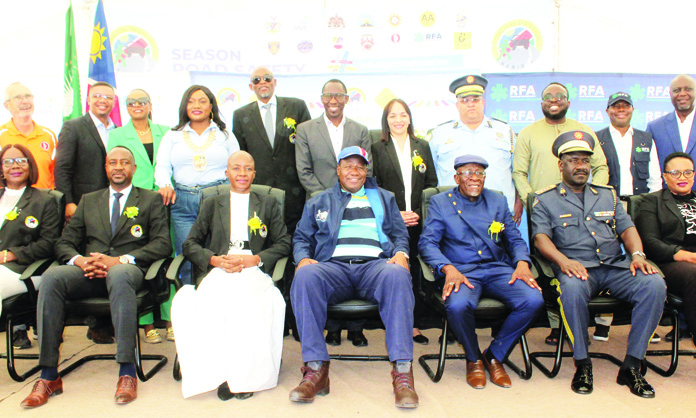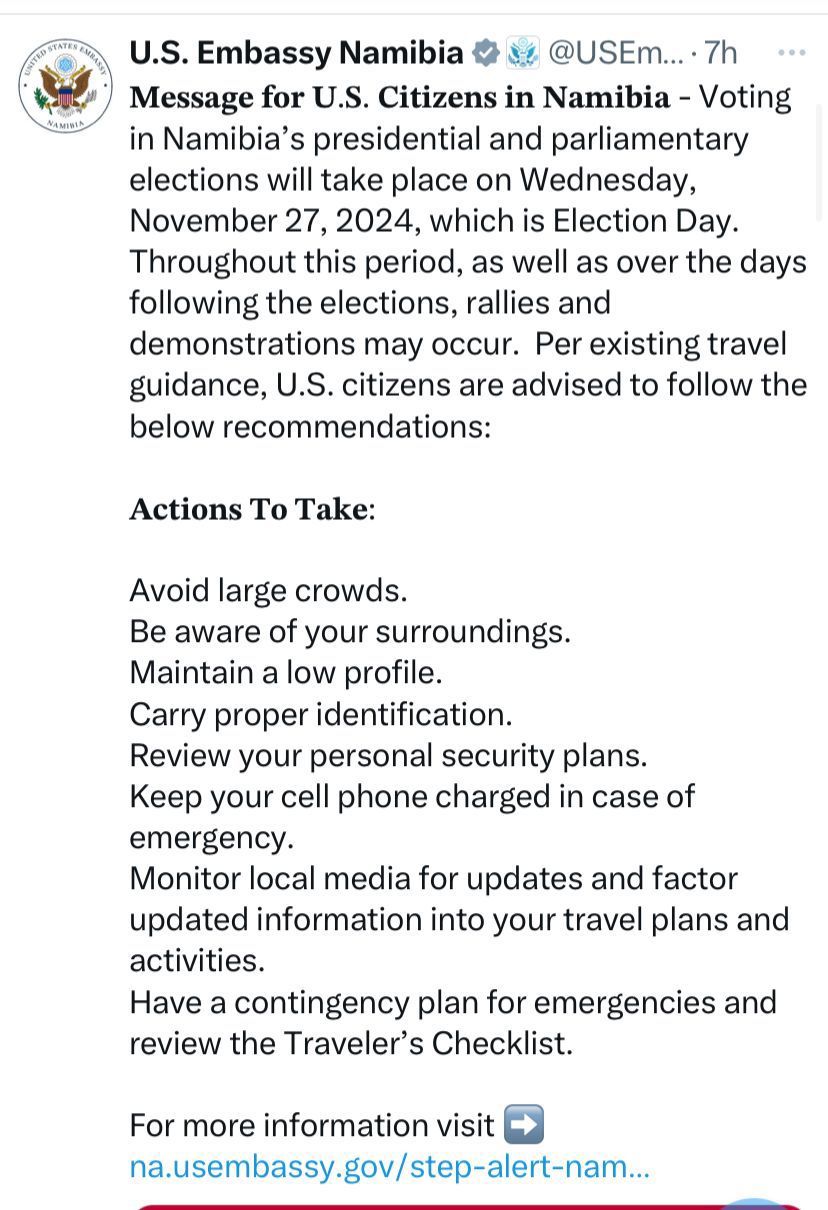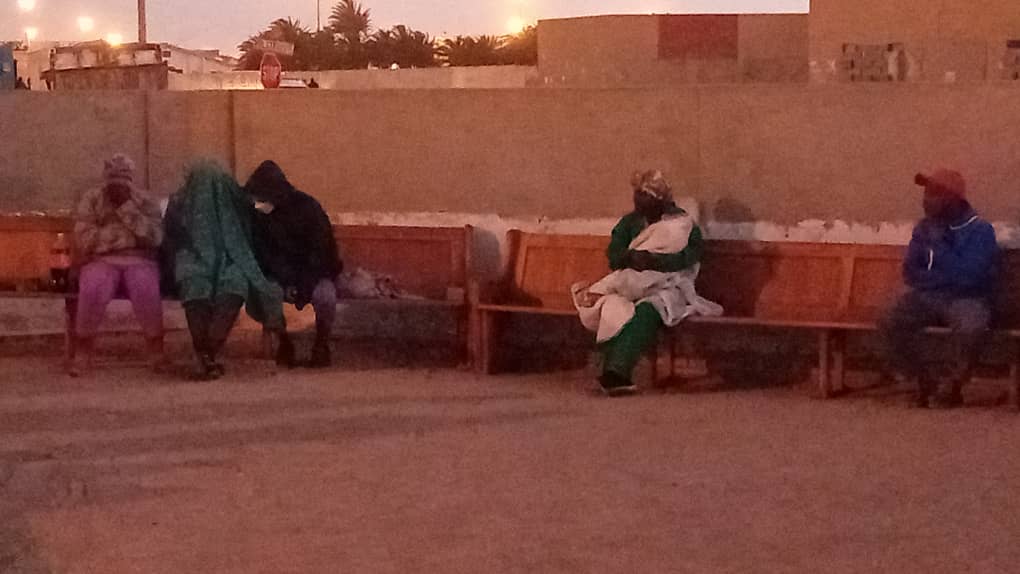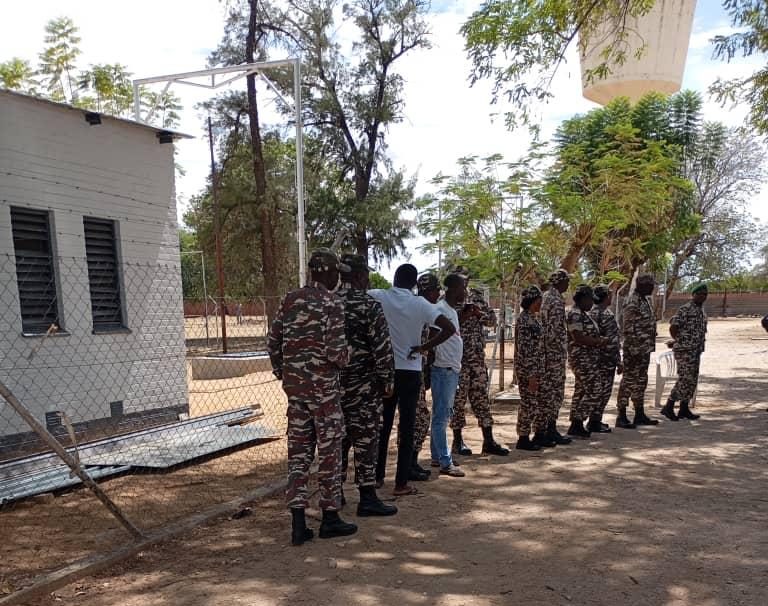The Motor Vehicle Accident (MVA) Fund says about 72% of road accidents in the country are caused by human error.
The fund says among the key causes of road carnage is speeding, overloading, fatigue, driving while on cellphones and overtaking at undesignated spots.
The MVA Fund in its latest report also says road conditions cause 25% of accidents, while 3% are as a result of a faulty vehicle.
Meanwhile, the 2023 ‘Festive Season Road Safety Campaign’ was launched at Swakopmund on Friday, aiming to eliminate irresponsible driving.
At least three out of four road acidents recorded last year were a as a result of irresponsible driving, the report states.
Some 324 road crashes and 67 fatalities were recorded during the festive season last year.
Rosalia Martins-Hausiku, the chief executive of the MVA Fund, at the launch said the risk of fatalities during this period of the year is high.
She said the fund spends an average of N$218 million annually on hospital expenses and personal claims, including for loss of support and income.
The campaign, launched under the National Road Safety Council (NRSC), is running under the theme ‘Do the Right Thing and Save Lives’ from 17 November to 17 January.
NRSC executive secretary Eugene Tendekule said individuals between the ages of 16 and 35 are mostly affected by road accidents.
“Their safety is not just a humanitarian concern, but also a matter of economic importance, as losses in this group could significantly impact the nation’s workforce and economic potential,” he said.
NRSC chairperson Eliphas !Owos-Oab said traffic accidents, primarily resulting from deliberate non-compliance with road rules, cannot be brushed off as mere errors.
“Instead, they represent a significant lapse in judgement and responsibility among road users,” he said.
Roads Authority (RA) chief executive Conrad Lutombi said while having good roads is important, “their safety is paramount”.
He said the Road Safety Strategy (2021-2030) prioritises infrastructure safety, the enforcement of traffic laws for commercial vehicles, vehicle worthiness and comprehensive driver testing.
As part of this festive season’s safety initiatives, the RA will deploy traffic law-enforcement officials equipped with speed cameras and alcohol screening devices on major highways, particularly the B1 and B2 routes.
Lutombi warned against the use of fake driving licences, noting that officials are now equipped with specialised tools to detect forgery.
He said mobile vehicle testing stations will be present at various roadblocks.
Police inspector general Joseph Shikongo at the launch urged that the campaign’s duration is extended to enhance road safety throughout the year.
“Maintaining a high level of road safety should be a year-round commitment, and not be limited to the festive season,” he urged.
Minister of works and transport John Mutorwa, who officiated the launch, emphasised the role of road safety in Namibia’s economic development.
He highlighted the congested state of corridors linking Namibia with landlocked countries in southern Africa, stressing that road safety and infrastructure development are not just about facilitating transport, but are integral to the economic well-being of the country.
“Improving our roads is not a favour to others, it is a strategic economic and developmental necessity for Namibia,” Mutorwa said.
Ali Ipinge, the chief executive of the Road Fund Administration (RFA), highlighted the administration’s commitment to the United Nations Africa Road Safety Action Plan (2021-2030).
Its contributions, exceeding N$200 million annually, include investments in the design and management of national roads, road reserve bush clearing and road markings, he said.
Furthermore, the RFA has enhanced traffic law-enforcement capabilities by supplying agencies with essential equipment and machinery, he said.
Beyond infrastructure, the administration supports road emergency initiatives by partnering with the MVA Fund, procuring medical equipment and refurbishing emergency medical and response centres.
Swakopmund mayor Dina Namubes indicated that Swakopmund expects a significant influx of visitors during the festive season, acknowledging the economic benefits while stressing the heightened need for road safety.
“This road safety campaign should not only be viewed as rules and regulations. This is a call to action, a plea for mindfulness, and a commitment to creating a culture of responsible and defensive driving,” she said.
Stay informed with The Namibian – your source for credible journalism. Get in-depth reporting and opinions for
only N$85 a month. Invest in journalism, invest in democracy –
Subscribe Now!






